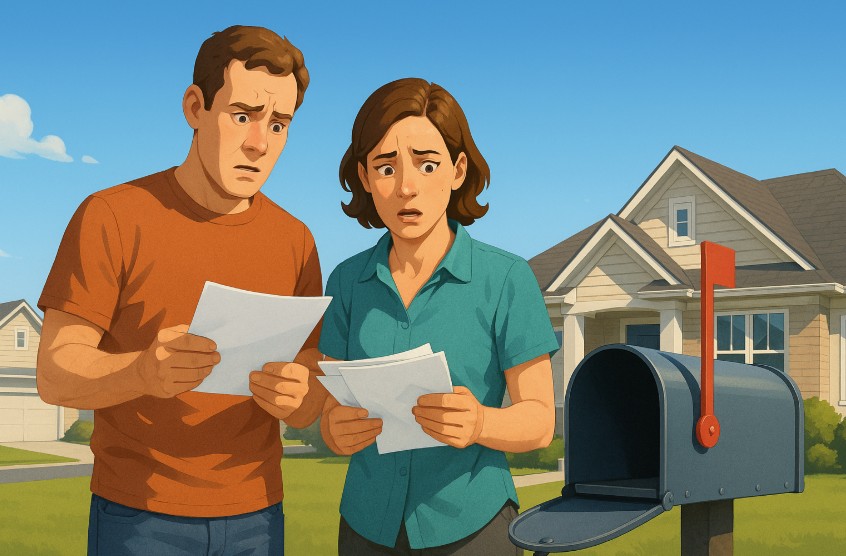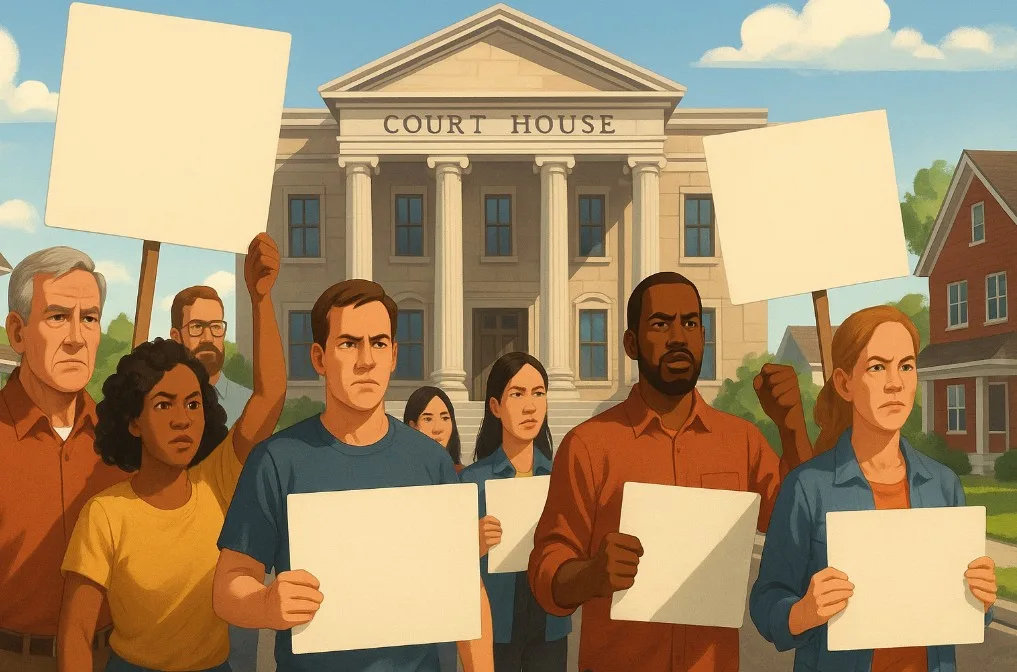In 2025, Cook County’s property tax billing system is facing yet another critical setback. The second-installment tax bills, normally due by August 1 for the 2024 tax year, have not been mailed as of September.
Homeowners are left in a state of uncertainty as officials scramble to fix system errors caused by a delayed technology rollout.
With no clear due date and conflicting information from different offices, thousands of residents and local governments are now facing financial disruptions. What does this mean for homeowners, and what should they do next?
Why Have Cook County Property Tax Bills Been Delayed Again in 2025?

The root of the delay lies in the failed implementation of a new tax processing system intended to replace Cook County’s decades-old legacy system.
Tyler Technologies, the software vendor responsible, launched the system five years behind schedule in April 2025. However, the platform was riddled with technical defects from the start.
Several contributing issues include:
- Late submission of property assessment data by the Assessor’s Office
- Errors in state equalisation factor calculations
- A system plagued by untested components and incomplete data inputs
Despite the official switchover, over 250 defects were identified, many of which led to incorrect assessments and billing inaccuracies. These compounded failures delayed every step of the process, from calculations to mailing.
How Does the Delay Impact Homeowners in Cook County?
For homeowners, this delay presents significant financial uncertainty. Without finalised bills, residents cannot plan or pay, leaving many unsure of how much they owe or when payment will be due. This lack of clarity affects budgeting, especially for those on fixed incomes or with escrow accounts.
Furthermore, the longer the delay persists, the greater the risk of sudden lump-sum bills or interest accrual. In previous years, these delays led to unexpected increases due to retroactive charges.
Many homeowners are also concerned about errors, as testing revealed discrepancies in over a million bills. These issues make it essential for homeowners to monitor official updates and prepare for potentially higher-than-expected amounts.
What Are the Consequences for Local Government Services?

The absence of timely property tax revenue is disrupting the financial stability of Cook County’s local government units. Municipalities, school districts, and emergency services rely heavily on these collections to meet operational costs.
Table: Key Services Affected by the Tax Bill Delay
| Service Type | Dependency on Tax Revenue | Current Financial Risk |
| Public Schools | High | Potential borrowing required |
| Fire Departments | Moderate to High | Delayed maintenance and staffing |
| Local Government Offices | High | Operational budget constraints |
| Community Health Clinics | Moderate | Risk of funding cuts |
| Sanitation Services | Low to Moderate | Minor delays in service |
Many agencies have had to consider temporary borrowing or emergency funding options to avoid shutting down critical services.
How Are Municipalities Managing the Funding Shortfall?
To address the growing cash gap, the County Board authorised a $300 million emergency loan fund to assist struggling taxing bodies.
These funds are designed to be repaid automatically once tax revenue is collected. Municipalities with fewer than 120 days of cash on hand and a lower bond rating than the county are eligible to apply.
However, not all entities qualify, major players like the City of Chicago and Chicago Public Schools are excluded.
This limited access increases financial stress for smaller towns and suburbs. While the fund provides a temporary cushion, long-term reliance on borrowing is unsustainable and adds further costs to taxpayers.
When Is the Second Installment of Property Taxes Now Due?
As of September 2025, no official due date has been announced for Cook County’s second installment. Normally expected by August 1, the bills have been indefinitely delayed. According to county officials, the Treasurer’s Office has “rescinded” the due date.
Homeowners should take note of the following:
- No bills will be mailed until all calculation issues are resolved
- The Treasurer’s website confirms that final tax amounts are still being processed
- The most optimistic estimate places bill distribution in late Q4 of 2025
Until then, residents cannot pay or confirm the amounts they owe, leading to mounting frustration and concern.
Who Is Responsible for the Ongoing Delays in Tax Billing?

Responsibility for the delay is being passed between various offices and officials. The Assessor’s Office was criticised for submitting assessment data three months late, which delayed equalisation factor calculations. Meanwhile, the Treasurer’s Office cited failures in Tyler Technologies’ system rollout.
Political tensions escalated when testing revealed major discrepancies in assessment values, exemptions, and total charges on more than a million sample bills.
Accusations have flown between:
- The Cook County Assessor’s Office
- The Treasurer’s Office
- Tyler Technologies
- The President of the County Board
Each blames the other for poor planning, insufficient communication, and system mismanagement. Despite some improvements, over 30 technical issues remain unresolved.
What Options Do Homeowners Have During the Delay?
While homeowners are unable to pay their tax bills until they are officially issued, there are several steps they can take to be proactive during this uncertain period.
Steps Homeowners Can Take:
- Monitor the Treasurer’s Website for updates on billing status
- Set aside funds for a potential larger payment later this year
- Review prior assessments and verify if any significant changes have occurred
- Consult a tax advisor about your property’s current valuation
- Prepare appeal documents in case of overassessment
This is also a good time to check for exemptions you may qualify for. Staying informed and ready can help mitigate surprises once bills finally arrive.
Should Property Owners Prepay or Wait for Official Notices?
Prepayment is currently not allowed, and it’s strongly advised that homeowners wait for official bills to be issued. Any payment sent before the official calculations are finalised may not be properly recorded.
Additionally, since the system is still undergoing fixes, there is a chance that new assessments or exemptions could alter the final amount owed. Paying early without this clarity could result in further complications.
How Might This Delay Affect the Broader Illinois Property Market?

This delay is more than just a local inconvenience. It has ripple effects across the broader property and real estate landscape in Illinois. From housing prices to mortgage processing, multiple sectors are affected.
Buyer Confidence May Decline
The delay creates uncertainty around homeownership costs, leading potential buyers to hesitate. Without knowing what taxes they’ll face, buyers may postpone or cancel deals.
Lenders Are Facing Challenges
Mortgage lenders rely on accurate tax estimates to determine escrow payments. A lack of clarity can lead to under- or over-collection, complicating mortgage management.
Realtors and Investors Are Reassessing Risks
With delays now recurring, investors and realtors may consider Cook County a riskier market. This perception can affect property values, especially in high-tax zones.
Is This the Start of a Systemic Breakdown or a Temporary Issue?
The repeated billing delays, technical failures, and bureaucratic disputes suggest deeper systemic issues. Though the county describes the delay as temporary, history indicates this may be an ongoing problem unless major structural reforms are implemented.
Points of concern include:
- Persistent lack of inter-agency coordination
- Delayed vendor accountability
- Poorly managed system rollouts
Unless a comprehensive and collaborative approach is adopted, these recurring problems may become embedded in the county’s property tax infrastructure. Residents may continue to face disruptions annually unless accountability and transparency improve.
Conclusion
Cook County’s property tax billing crisis in 2025 has highlighted significant vulnerabilities in its administrative and technical systems.
While a new system was meant to streamline operations, it has instead introduced confusion and delays. Homeowners, already facing rising tax burdens, are left in limbo, while local governments scramble to manage budget shortfalls.
The future hinges on successful system fixes, better inter-office collaboration, and long-term reforms that can restore public trust in the process.
FAQs About Cook County Property Tax Bills Delayed
What is causing repeated property tax billing issues in Cook County?
The ongoing issues are largely due to technical failures in the newly implemented tax system and delays in data submissions between offices.
How can property owners check the status of their tax bill?
Property owners should visit the official Cook County Treasurer’s website for the latest updates and notifications.
Will delayed tax bills lead to higher future payments or penalties?
No penalties will apply unless officially stated, but bills could be higher due to compounded assessments or increased levies.
Are any counties in Illinois experiencing similar property tax delays?
While Cook County faces the most severe delays, other counties have experienced minor issues but not on this scale.
What steps is the Cook County Treasurer taking to resolve this?
The Treasurer’s office is currently working with technical teams to resolve defects and is refusing to mail bills until they are fully accurate.
How do late tax payments affect mortgage escrow accounts?
Escrow accounts may end up underfunded or overfunded, which can lead to future adjustments or shortages for homeowners.
Could the billing delay influence property values in Cook County?
Yes, prolonged uncertainty can deter buyers and create perceptions of risk, potentially reducing property values in affected areas.




